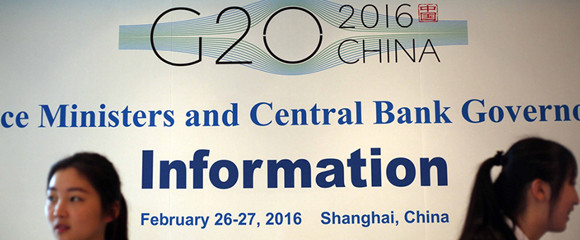Curb graft to boost growth, reduce poverty
Updated: 2016-05-09 08:19
By ASIT K. BISWAS/CECILIA TORTA JADA/AUGUSTIN BOEY(China Daily)
|
|||||||||
Corruption has become a way of life in most developing countries in Asia. Regrettably, it appears to be becoming more entrenched with time in many countries. A survey by Transparency International, in 2011, found that 66 percent of Bangladeshis and 54 percent of Indians had paid a bribe during the previous 12 months. In addition, 62 percent felt that corruption had worsened in their countries over the past three years.
In countries where corruption is rife, providing gifts, bribes and free services to public servants is often part of the local culture, because it is considered a way of showing gratitude and maintaining good relations with them. Honest civil servants often encounter intensive and sustained peer pressure if they want to shun or oppose corrupt practices.
Indeed, corruption can be controlled by strengthening institutions and upholding the rule of law.
Consider Singapore. It is an excellent example of how strong political will can ensure clean governance. In wide-ranging private discussions, Singapore's former prime minister Lee Kuan Yew said corruption had been commonplace in Singapore's colonial civil service. When his party came to power, its leadership enshrined anti-corruption as a development priority because it believed it was a prerequisite for good governance. The absence of corruption provided a hospitable and sustainable environment for foreign direct investment and economic development, two things the city-state needed most to reduce its high unemployment rate and expedite its economic development.
China is following in Singapore's footsteps. China's top leader Xi Jinping has declared a war against corruption, targeting both "tigers and flies" (high-ranking and lower-level officials). It has made considerable progress.
However, China is a vast country, with a population nearly 240 times that of Singapore. Because of its huge size, China's fight against corruption will take much longer time than in Singapore. Furthermore, to succeed, there must be a sustained interest at high political levels to control corruption. Many powerful Chinese politicians and bureaucrats are now behind bars because of their corrupt practices.
In contrast, in India, as eminent economist Jagdish Bhagwati has noted, the main problem is that no one gets punished for corruption, even in very serious cases. This has given many powerful politicians and senior bureaucrats a free license to steal.
As US President Barack Obama has noted, "a strong, more inclusive, more accountable and transparent" governance structure is needed which can strengthen national institutions and laws. This will reduce corruption and contribute to economic development and poverty alleviation in developing countries.
Asit K. Biswas is a distinguished visiting professor at Lee Kuan Yew School of Public Policy, National University of Singapore; Cecilia Tortajada is a senior research fellow at the Institute of Water Policy; and Augustin Boey is a research associate in the same school.
Related Stories
China's military deploys its first corruption inspectors 2016-05-05 15:34
New rule targets military corruption 2016-05-09 08:02
Corruption threshold raised by new judicial interpretation 2016-04-18 15:20
Opening-up the market for funeral services can eliminate corruption 2016-03-31 07:52
Today's Top News
AC Milan starts sale talks with Chinese investors
London's mayor an exception to Muslim ban -Trump
China consumer prices up 2.3% in April
EU anti-dumping moves may damage ties with China
Search widens for leading overseas professionals
60% of career women say no to second child: report
Testing times
Big hopes as China hosts the G20
Hot Topics
Lunar probe , China growth forecasts, Emission rules get tougher, China seen through 'colored lens', International board,
Editor's Picks

|

|

|

|

|

|







